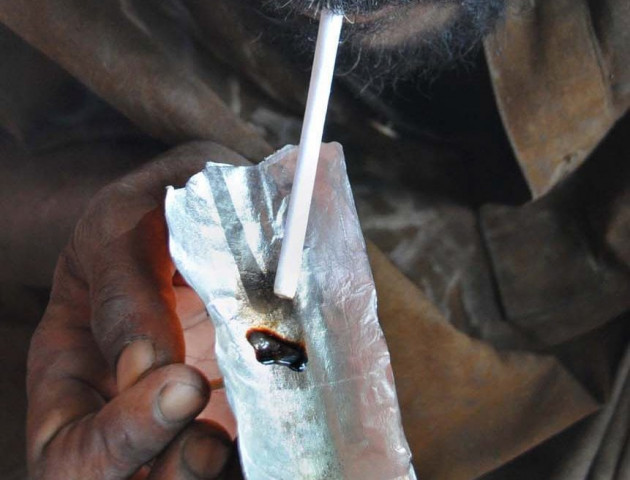Drug (ab)use
According to a UNODC representative 40 per cent of the world’s opium supply moving through Pakistan.

If the provinces coordinate with the federal government agencies to cut out the roots of the problem, transnational drugs trafficking routing through Pakistan can be much diminished, if not stopped altogether. PHOTO: APP

The devastating consequences of this illicit commerce are apparent to every discerning eye. A top Narcotics Control Division official was bang on the mark when he said that drug use is now affecting every fibre of Pakistani society. A UNODC representative noted that Pakistan, once largely poppy free, has now become one of the main drug transit states in the world, with 40 per cent of the world’s opium supply moving through its soil. It is not that the country does not have the capability to rein in the problem. The report provides ample evidence of past success. For instance, in the 1980s, poppy production was just limited to Fata and Khyber-Pakhtunkhwa. But as the government intervened effectively, production fell from approximately 800 tonnes in 1980 to a mere nine tonnes in 1999. This clearly shows that if there is a will, there is a way. But as the government agencies slackened, the problem came back with a vengeance. The result: Pakistan has now become a transshipment point for 40 per cent of the most addictive poppy derivatives.
To be fair to the country, it cannot change its geography and has to contend with the fact that it has a neighbour which cultivates 70 per cent of the world’s opium, making the job of narcotics control all the more harder. But as we said earlier, a firm resolve is required to stamp out the drugs menace. If the provinces coordinate with the federal government agencies to cut out the roots of the problem, transnational drugs trafficking routing through Pakistan can be much diminished, if not stopped altogether. This will bring its rewards at home, making it possible to stem the tide of substance abuse that is devastating families at present.
Published in The Express Tribune, March 6th, 2014.
Like Opinion & Editorial on Facebook, follow @ETOpEd on Twitter to receive all updates on all our daily pieces.















COMMENTS
Comments are moderated and generally will be posted if they are on-topic and not abusive.
For more information, please see our Comments FAQ